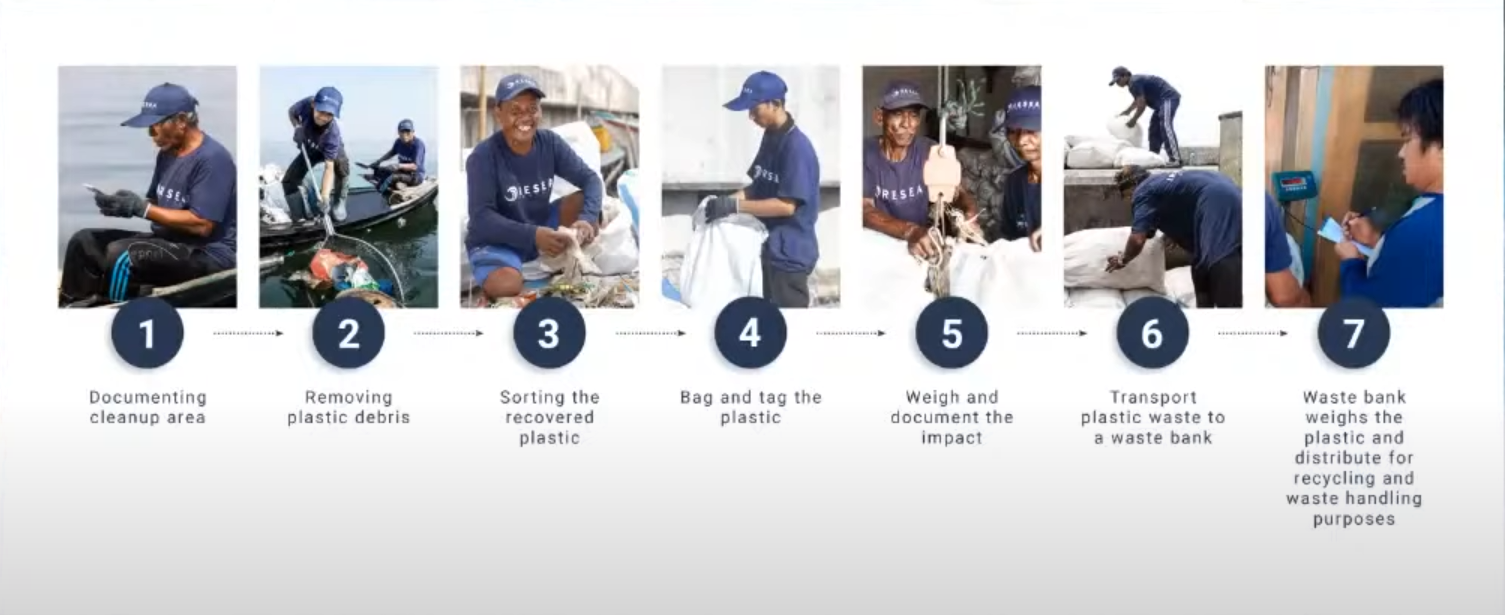Using the VeChain Blockchain to verify ocean plastic cleanup
If I approached you today and asked you for $100 to help remove plastic from oceans and rivers on the other side of the world, I’m sure you would have many questions. However, you reluctantly hand over the cash because it’s for a good cause. A couple months later, I email you a report, letting you know that your money helped remove one ton of plastic from the Ocean, Hooray!
However, as a natural skeptic, and data-driven thinker, you want to see the data behind this assertion. Where was the plastic cleaned-up? Where did it go? How long did it take? Unfortunately, I am unable to provide you with the answers to these valid questions because they don’t exist.
Although many charities and non-profits around the world do an amazing job collecting data to support the work they are doing, many fall short, and often donors have to rely on the word of the organization and trust that they are being honest. However, it doesn’t have to be this way. Enter the ReSea project.
The ReSea Project is an organization based out of Denmark with the mission “to end the ocean plastic crisis while making waves beyond the sea we work in.” From January-April, 2021, ReSea recovered 672,936 lbs of plastic from oceans and rivers, which is the equivalent of 15,261,950 500ml plastic bottles. Now here is the cool part; all of the collection data to support this number is blockchain verified.
So how exactly does blockchain play into this? According to ReSea, “A blockchain-based tracking system secures real-time data and track [sic] the origin of the recovered plastic and all the steps of the cleanup process until delivery at a local waste bank. This ensures true authenticity and the highest level of traceability.” The blockchain-based system in question, which they are referring to, is the ToolChain platform by VeChain.
ReSea, in partnership with VeChain, and DNV, created a seven-step tracking process to document the journey of the plastic waste from clean-up area to the waste bank. This ensures that secure, real-time data tracks the process from start to finish through the following steps:
1. Documenting the clean-up area
2. Removing the plastic debris from the ocean or river
3. Sorting the recovered plastic
4. Bagging and tagging the plastic
5. Weighing and documenting the impact
6. Transporting the plastic waste to a waste bank
7. The waste bank weighs the plastic and distributes it for recycling and waste handling purposes
To effectively track the journey through each of these steps, ReSea’s digital tracking system is made up of three components including a smartphone app used by the collectors to input data, a blockchain system that stores the data from the collectors in an immutable blockchain database, and an analysis tool that extracts the data from the blockchain for analysis by ReSea.
The process employed by ReSea is verified by the large, multi-national risk management and classification organization DNV. According to DNV, ReSea is “the second organization in the world to be certified to DNV GL’s Chain of Custody standard built to assure the traceability and integrity of plastic recovered from the hydrosphere.”
So why is this such a big deal?
As highlighted above, donors must often trust the word of charities that they are giving their hard-earned money to, with little to no evidence that their money is being put to good use and that the organization is having the impact they say they are. The blockchain-based certification process implemented by ReSea ensures a comprehensive system of data collection is in place that is immutable, efficient, and much harder to manipulate. Through this system, stakeholders can see every step of the process, and donors can trust that their money is being put to good use.
However, the use cases for this technology are endless, and go well beyond reassuring donors. This same certification process could be applied to verify organic produce, trace the source of fair-trade coffee, follow the path of conflict free minerals, and so much more.
This partnership between ReSea, DNV, and VeChain can be a pilot for a new, innovative, and inherently trustworthy process for certification and accreditation that could eliminate the element of blind trust from of system that has long relied on it.
Looking for more information on this project? Check out this recent webinar hosted by ReSea, DNV, and VeChain on this project. For information on more potential use cases, check out our recent blog post titled Blockchain and certification for good.
What are your thoughts on this project and its future implications? Tweet us at @Crypto_Altruism to let us know what you think!


